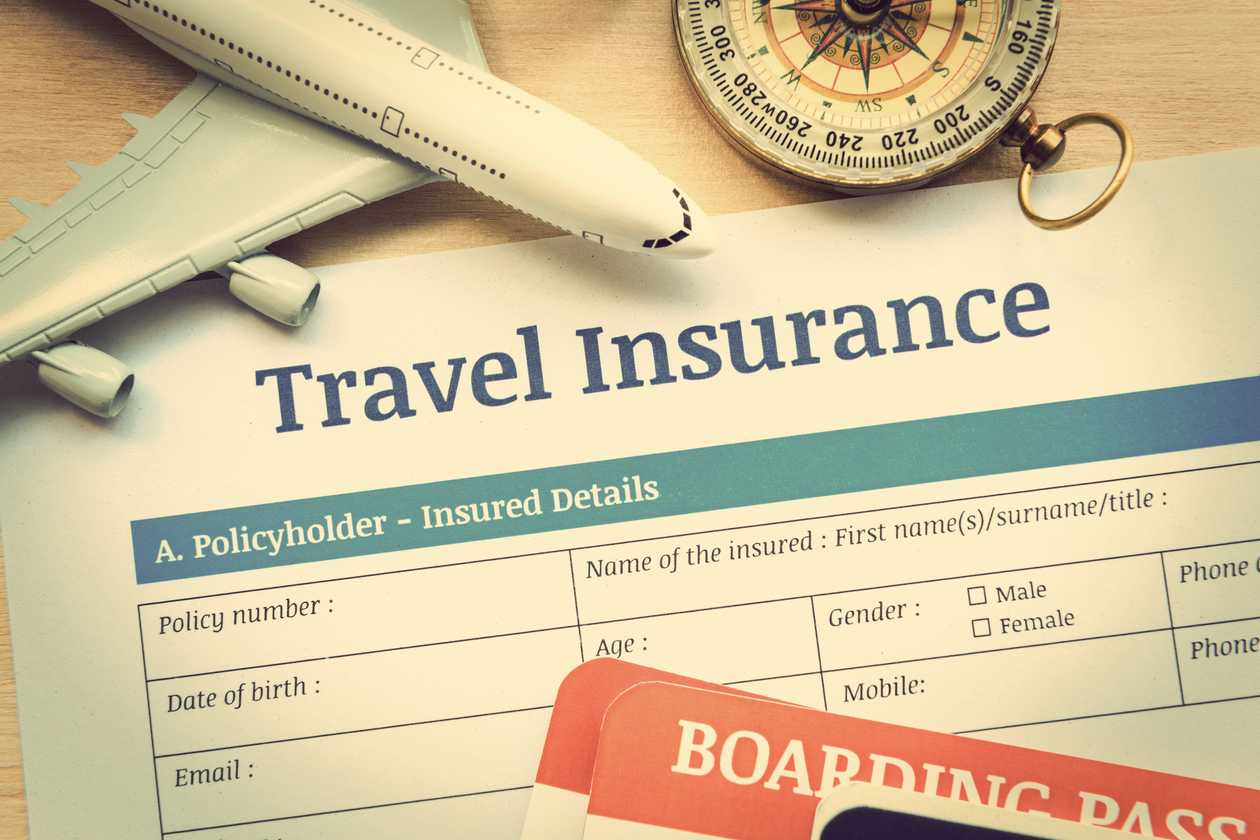Our evaluations and opinions are not influenced by our advertising relationships, but we may earn a commission from our partners’ links. This content is created independently from TIME’s editorial staff. Learn more about it.
Travel insurance can provide financial reimbursement to cover unforeseen events that happen both before and during a trip. Depending on your travel insurance policy, these situations could include trip-cancellation benefits, trip-delay and trip-interruption benefits, medical-expenses coverage, emergency-evacuation coverage, and baggage-loss benefits. To get the most value out of your policy, experts recommend that you purchase travel insurance at the time you book your trip.
What does travel insurance cost?
Generally, travel insurance is priced as a percentage of a trip cost. Policies suitable for U.S. and international travel usually cost between 4% to 8% of the total trip price.

Travelex Travel Insurance
Travelex Travel Insurance
Policy cancellation
What impacts the cost of travel insurance?
In general, policy price is dependent on the cost of the trip, age of traveler, and other factors, including destination, length of trip, and type of plan. Here is how these factors work to determine what you’ll pay.
- Trip cost. It’s no surprise that big, expensive trips are more costly to insure than smaller trips. “Keep in mind that this is based on your prepaid, nonrefundable expenses, so a big trip abroad with few prepaid expenses might actually have a lower travel insurance cost than a short domestic trip with a ton of prepaid expenses,” says Stan Sandberg, cofounder of TravelInsurance.com.
- Age. Similar to typical health insurance, age is one element that can increase or decrease policy rates. “As you might expect, the older you are, the more you’re going to have to pay,” says Sandberg, who goes on to explain that most travel insurance companies have age brackets based on where they see shifts in claim amounts and claim volume.
- Health of travelers. Your health is another determining factor involved in policy prices. If you have pre-existing health conditions, Sandberg says you’ll either pay a higher rate or be exempt from certain policy coverages.
- Plan type. Basic travel insurance plans are cheaper than high-end plans because they cover less. “Even if you think basic insurance is enough, always compare the price of a basic and an expensive plan to see how much more coverage it offers for the price difference. You’d be surprised at how much more coverage you can get for a little more money,” Sandberg says. Additionally, a traveler can purchase an annual travel insurance plan. “These products can be a convenient option for those who travel frequently,” says Daniel Durazo, director of external communications at Allianz Partners U.S. “Offered at a flat rate, the price of an annual policy may not increase with age and trip cost. Still, some annual products allow travelers to select the level of their cancellation coverage, which will affect the total cost of the plan.”
- Deductible. Similar to other types of insurance, opting for a lower deductible may result in a higher travel insurance cost because you’re paying less in out-of-pocket costs should you file a claim.
- Number of travelers. If you’re traveling with family, you can have one travel insurance plan to cover multiple people, with each person having their own premium. In general, the more people on a policy, the more expensive the policy will be, says Sandberg.
- Destination. Sandberg says some travel insurance carriers will factor the destination into their price. This is due to some places being safer than others. “If you’re visiting a country experiencing unrest or that has high crime rates, your insurance costs may be higher, since your insurance sees it as more of a risk. This isn’t always the case, however,” he says.
- Trip length. Longer trips may cost more to insure than shorter trips. Not only are there more prepaid costs on a longer trip; there is also a higher probability that something might happen, says Sandberg.
Considerations before buying travel insurance
You can buy travel insurance all the way up to the day before your trip departure date. To reap the most value, though, it’s best to purchase it when booking your trip, just after the first deposit (or full payment up front, if applicable) has been made, says Sandberg.
If you buy it soon after your first deposit, you will have access to optional upgrades, such as “cancel for any reason” coverage, and you may be eligible for waivers of the pre-existing condition exclusion.
Also, before purchasing a travel insurance plan, it’s important to consider your travel destination and why you might need a plan. “For example, if you are traveling to the Caribbean, as with most other international destinations, you might consider purchasing a travel insurance plan that includes coverage for common travel issues, such as trip cancellation, trip interruption, trip delay, medical expense, and lost or stolen luggage,” says Jeff Rutledge, CEO, AIG Travel.
However, he continues, you might also consider a travel insurance plan that includes medical-evacuation coverage, as it could be a significant distance to a well-equipped medical facility should a severe injury or illness occur. “For this reason travelers with underlying medical conditions might wish to consider additional medical-evacuation coverage to cover costs associated with transportation to either the nearest recommended medical facility or back home,” says Rutledge.
He goes on to note that the Caribbean is affected by severe weather, such as hurricanes. Purchasing a travel insurance plan before a storm is named would help protect the traveler’s unused, prepaid, nonrefundable trip expenses, subject to the terms of the travel insurance plan.
TIME Stamp: ‘Buy when you book’ makes the most sense for travel insurance
A basic travel insurance plan typically provides benefits for trip cancellation for covered reasons outlined in your plan, travel delays and interruptions, medical emergencies and evacuation, and benefits for baggage loss.
Should you want higher travel protection, you can upgrade your policy to include “cancel for any reason” coverage. This gives you more latitude to cancel your trip, as long as you meet the criteria outlined in your policy documents.
To get the most value out of your policy, purchase travel insurance at the time you book your trip. Many travel insurance carriers have customer service phone numbers at which callers can get answers to questions about policies, plans, and prices.
Frequently asked questions (FAQs)
Is travel insurance worth the money?
Travel insurance can offer you something money can’t buy: the peace of mind to fully enjoy your upcoming travels. “It can also provide a tremendous financial benefit in protecting your prepaid travel expenses when you have to cancel your trip for a reason covered by your policy and for costs incurred during a medical emergency,” says Durazo.
Those traveling outside the U.S. should note that foreign healthcare providers usually will not accept U.S. domestic health insurance, making it important to have travel insurance with emergency medical and emergency medical transportation benefits. These benefits can cover the cost of treatment and the trip home.
Do travel credit cards offer travel insurance?
While travel protection may be provided by your credit card benefits, your upcoming trip might require higher maximum benefit amounts. “Travelers should check with their credit card issuer to determine if the protection offered includes both trip cancellation and trip interruption, baggage loss and delay, reimbursement for trip delay, coverage for travel medical expenses, and emergency medical evacuations,” says Rutledge. The basic travel insurance plan offered by AIG Travel provides each of these coverages. It is also important to know if the coverage offered is primary or secondary. If it is secondary, Rutledge says the provider may require an explanation of benefits from the primary insurer that details how the claim was processed before it determines the amount of the benefit(s), such as a deductible or coinsurance, it will pay.
Should I purchase ‘cancel for any reason’ coverage?
Basic travel insurance plans will provide trip cancellation benefits only for covered reasons listed in your travel insurance plan documents. Covered reasons for trip cancellation generally include death of a close family member or travel companion; a serious family emergency; an accident or illness that happens to you, a travel companion, or a close relative; severe weather; military deployment; unplanned jury duty; a sudden job loss; and your travel supplier going out of business.
If you want more flexibility to cancel your trip beyond what is covered, you should upgrade your plan to add “cancel for any reason” coverage. This premium coverage will boost the cost of your travel insurance plan by about 50% but grants you the liberty of canceling your trip for any reason: fear of travel, a fight with your travel companion, or just if you change your mind about going—as long as you cancel no later than 48 hours before your trip.
If you meet all the criteria in your plan, you can expect to receive between 50% to75% reimbursement of your nonrefundable, prepaid trip expenses. It’s important to remember that certain exclusions apply so always read the fine print on plan documents before you sign.
The information presented here is created independently from the TIME editorial staff. To learn more, see our About page.

